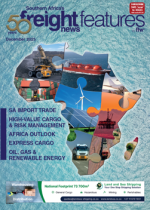The African Continental Free Trade Area (AfCFTA), officially launched in January 2021, is making waves in Africa's economy. It's all about reducing import tariffs, bringing African regions closer together, and boosting industry and infrastructure. This trade deal is expected to increase trade within Africa by 52.3%, leading to more unity, productivity, and jobs. By 2035, Africa's total exports could hit $952 billion, but there's even more potential to grow this number by 29% annually until 2035. According to Yaa Ngonyama, an analyst at Frost & Sullivan, the AfCFTA could potentially be a game changer for Africa's economic future. “For South Africa, the successful implementation of the AfCFTA is poised to yield a wide array of benefits. These include diversification of exports, increased productive capacity, accelerated economic growth, heightened investment levels, expanded employment opportunities, and enhanced income prospects, all contributing to a more inclusive and robust economy. The AfCFTA also presents an opportunity to create a stable and conducive environment for investments, particularly in infrastructure development, while fostering synergies for cooperation, trade, and development with partners across the African continent.”Beyond the heightened trade opportunities created by the AfCFTA, it also holds potential for an improved investment climate, skills enrichment, technological advancements, augmented inf luence in pan-African matters, and amplified negotiating strength for South Africa as a member of the Brics plus group. “Although South Africa entered the Brics alliance in 2010 as one of the smallest members in terms of demographics, economics, and GDP, it represented a significant gateway to sub-Saharan Africa's economy, accounting for one-third of the region's economic activity. The country, therefore, constituted an entry point for the Brics countries to tap into Africa's one-billion-strong consumer market.”Ngonyama said he was generally positive about the AfCFTA and its impact on South Africa and the continent. “We do anticipate increased infrastructure development in trade ports to facilitate the seamless f low of goods throughout the continent.”

